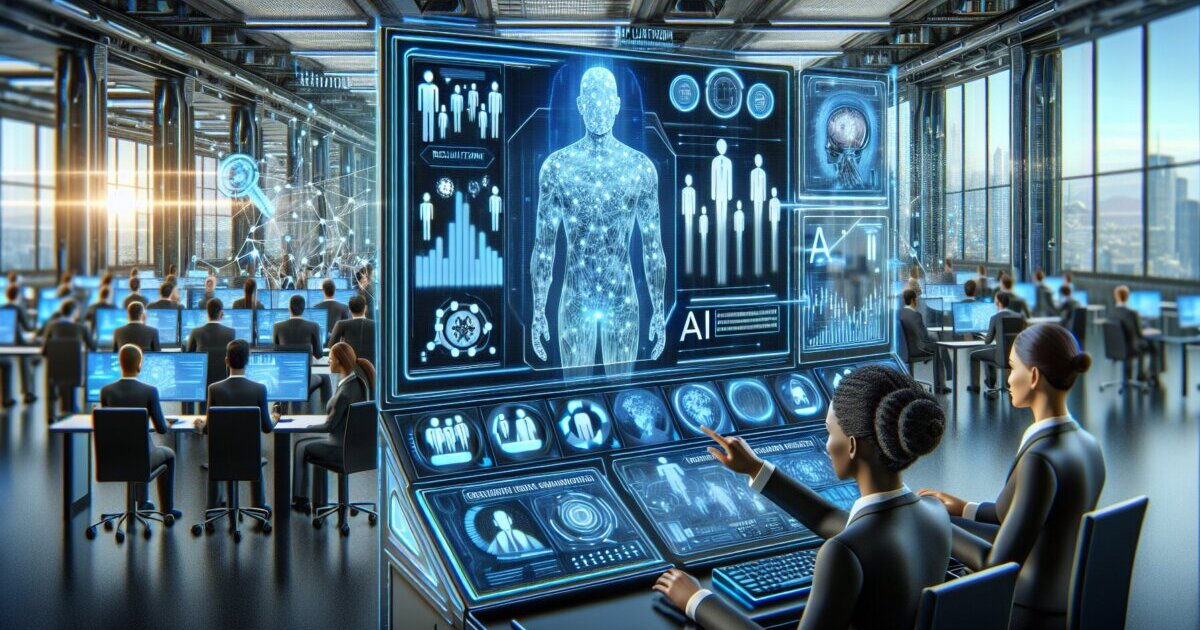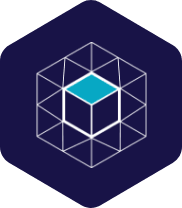
Exploring the Future of AI Talent Management: Recruitment, Training, and Beyond
Author: Maximilian Giffhorn
· 4 mins readIn a rapidly evolving work environment, companies are reconceptualizing roles beyond mere titles to collections of skills and tasks, highlighting a shift towards identifying roles susceptible to automation. As skills required for jobs undergo a transformation, with the average LinkedIn member witnessing a 25% change in the past eight years, AI talent management becomes crucial for harnessing artificial intelligence in recruiting and ensuring competitive advantage.
Embracing AI in recruitment and talent management not only boosts productivity and diminishes workload but also enhances human-to-human collaboration, positioning AI for talent acquisition and AI-driven recruitment at the forefront of strategic business innovation. This underscores the importance of integrating AI recruiting tools, like candidate relationship management and learning management systems, in nurturing and retaining AI talent.
Embracing AI for Strategic Recruitment
In the realm of strategic recruitment, AI is redefining efficiency and precision.
Here’s how:
- Semantic Analysis for Precise Matching: AI algorithms delve into the semantics of job offers, ensuring a perfect match by targeting CVs that align closely with recruiters’ expectations.
- Automated Onboarding with AI Chatbots: New hires receive instant support and access to frequently asked questions through AI-powered chatbots, making the onboarding experience seamless and tailored.
- Streamlining the Hiring Process:
- Resume and Cover Letter Analysis: AI significantly shortens the hiring cycle by analyzing resumes and cover letters to pinpoint the best candidates for a role.
- Task Automation: High-volume, repetitive tasks such as posting job descriptions, downloading resumes, and data filtering are automated, enhancing efficiency [1].
- Cognitive Matching: Leveraging NLP, AI reads through job descriptions and candidate profiles, finds matches, and even predicts good fits for similar or future positions [1].
- Data-Driven Recruitment Culture:
- AI fosters a data-centric culture within companies, elevating productivity and providing recommendations for employees’ future roles, thereby raising the bar in recruiting.
- It filters through applications to present only the best candidates to hiring managers, optimizing the selection process.
- Innovative Recruitment Tools:
- Resume Screening Tools: Quickly identifies the most qualified candidates, reducing time-to-fill.
- Recruitment Chatbots: Automates interview scheduling and application status tracking, lowering cost-per-hire.
- Machine Learning for Predictive Hiring: Analyzes past hires to identify characteristics predictive of success, improving the quality of hires.
By embracing AI in recruitment, organizations can not only enhance their hiring processes but also ensure they are equipped with top-tier talent poised for future challenges.
Training AI Talent: Evolving Skills for Tomorrow
In the evolving landscape of AI talent management, training programs tailored to individual needs are paramount. AI recommends customized training programs that cater to the unique requirements, learning preferences, and career aspirations of each employee. These AI-powered tools create personalized training experiences by analyzing employees’ specific needs, skill levels, and learning styles. Furthermore, the application of Natural Language Processing (NLP) enhances these training programs by understanding and responding to human language, making connections between linguistic expressions, actions, and environments, thereby facilitating a more interactive and engaging learning experience.
Organizations are increasingly leveraging platforms like Solutions.AI for Talent & Skilling, which offer comprehensive insights, content, design, and delivery experiences for skill development. Continuous learning initiatives are critical, encouraging employees to embrace new ways of working and diversify their skills. This approach is supported by intelligent workforce insights that assess roles and skills against the competition and anticipate potential gaps. Moreover, personalized learning plans are instrumental in planning and monitoring career paths, ensuring employees are well-equipped for future advancements.
Major corporations and educational initiatives are playing a significant role in advancing AI skills training. Amazon has pledged to provide free AI skills training to 2 million people by 2025, offering various programs to help students and working adults explore AI career pathways and skillsets [2]. Similarly, Microsoft’s AI Skills Initiative and AI Toolkit for trainers aim to democratize AI knowledge, offering virtual community events, learning pathways, and advanced learning opportunities for technical skills [3]. These efforts underscore the importance of continuous learning and upskilling in AI, preparing the workforce for the demands of tomorrow’s job market.
Retaining AI Experts: Nurturing a Supportive Environment
To nurture and retain AI talent effectively, organizations must focus on several critical areas:
- Employee Sentiment and Experience:
- Utilize AI for analyzing employee feedback, surveys, and social media interactions to accurately gauge sentiment.
- Deploy AI-powered surveys and NLP tools to identify areas for improvement in the employee experience [1].
- Support and Growth Opportunities:
- Offer technical and institutional support, especially in government roles where alignment with agency missions is crucial for retention.
- Provide retention incentives, skill development opportunities, and competitive salaries, including comprehensive benefits packages.
- Create opportunities for professional growth through training programs, workshops, and mentorship.
- Work Environment and Culture:
- Promote flexible work arrangements for better work-life balance and job satisfaction.
- Establish clear career progression paths and a positive, collaborative culture to foster a sense of community.
- Implement diversity and inclusion policies, recognizing the role of a diverse workplace in enhancing productivity and reducing turnover.
These strategies, grounded in recognizing the unique needs and aspirations of AI professionals, are fundamental in creating an environment where AI talent can thrive and contribute to innovation and growth.
Measuring Success: AI Talent Management Metrics
In measuring the success of AI talent management, several key metrics offer invaluable insights into the effectiveness of recruitment, training, and retention strategies:
- Recruitment Metrics:
- Time-to-fill: Tracks the duration from job posting to acceptance, reflecting the efficiency of the recruitment process.
- Cost-per-hire: Calculates the total cost involved in filling a position, providing insight into the financial efficiency of the recruitment strategy.
- Quality-of-hire: Assesses the performance and potential contribution of new hires, indicating the effectiveness of the selection process.
- Performance and Retention Metrics:
- AI-driven Performance Insights: Utilize AI-based systems to gain detailed insights into employee performance, engagement levels, and potential leadership qualities.
- Predictive Attrition Models: AI tools analyze internal and external data, along with communication patterns, to predict and mitigate potential employee turnover.
- Development and Satisfaction Metrics:
- Transfer of Talents and Highly Potential Talent: Measure the movement and development of high-potential employees within the organization, indicating the success of talent nurturing and growth opportunities.
- Employee Sentiment Analysis: AI technologies like NLP analysis provide insights into employee sentiment, guiding initiatives to improve job satisfaction and retain AI talent.
These metrics, when analyzed together, provide a comprehensive view of the AI talent management landscape, aiding in the strategic decision-making process to enhance recruitment, development, and retention efforts.
References
[1] –https://www.ihrim.org/2021/08/ai-and-the-future-of-talent-management-by-sergio-mastrogiovanni/
[2] –https://www.aboutamazon.com/news/community/amazon-ai-jobs-skills-training
[3] –https://www.microsoft.com/en-us/corporate-responsibility/ai-skills-resources





Share